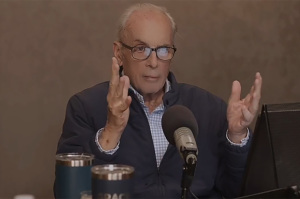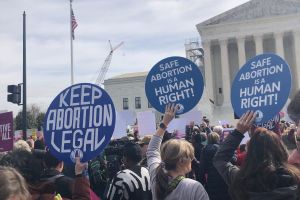Joseph Paul Franklin Execution: Killer Gives Final Interview, Says 'It'll Be the Kingdom of Heaven for Me'
Convicted murderer Joseph Paul Franklin is scheduled to die via lethal injection at 12:01 a.m. on Nov. 20; he famously shot Larry Flynt, leaving him paralyzed for life. Now, in a new interview, Franklin states that he felt he was "at war" with other races, which is what led to the shootings. Flynt, meanwhile, is working with the ACLU to stop the execution.
"I felt like I was at war," Franklin told CNN. "The survival of the white race was at stake. I consider it my mission, my three-year mission. Same length of time Jesus was on his mission, from the time he was 30 to 33. I figured once I started doing it and showed them how, other white supremacists would do the same thing."
From 1977 to 1980, Franklin targeted interracial couples, African Americans, and Jews for assassination. According to some reports, Franklin killed approximately 22 people but was only convicted of the murder of Gerald Gordon, whom he shot outside a synagogue in St. Louis, Missouri.
"Well that's what they tell me," he said when asked if hate groups saw him as a hero. "I'd rather people like me than not like me, like most people. I'd rather be loved than hated. They're not the only ones who love me, though. There are a lot of Jews who love me, too. When you commit a crime against a certain group of people, a bonding takes place. It seems like you belong to them."
Larry Flynt, the publisher of "Hustler" magazine and one of Franklin's victims, is currently working with the ACLU to stop the execution. Flynt would rather see justice prevail than revenge and wrote an op-ed for The Hollywood Reporter explaining his views.
"As far as the severity of punishment is concerned to me, a life spent in a 3-by-6-foot cell is far harsher than the quick release of a lethal injection. And costs to the taxpayer? Execution has been proven to be far more expensive for the state than a conviction of life without parole, due to the long and complex judicial process required for capital cases," Flynt wrote.
"As I see it, the sole motivating factor behind the death penalty is vengeance, not justice, and I firmly believe that a government that forbids killing among its citizens should not be in the business of killing people itself," he added.
As for Franklin, he is "willing to accept the will of the Lord. The scriptures tell us when someone repents, God forgives them. Everything is forgotten, once forgiven. But the state doesn't think that way."
When asked what he thought awaited him after the execution, Franklin said it would not be a "burning hell because I'm serving the Lord. It'll be the kingdom of heaven for me because I've repented."





























